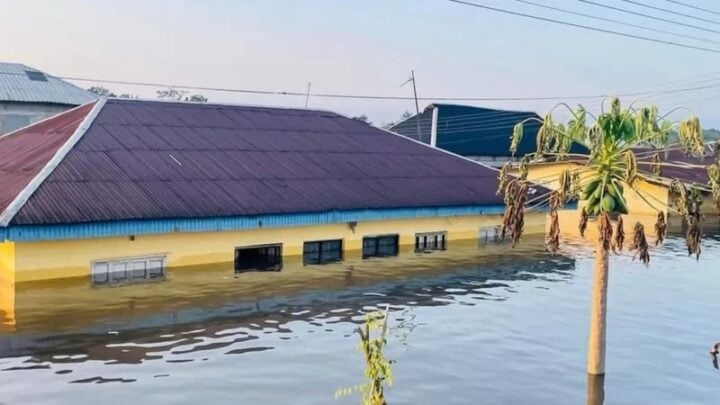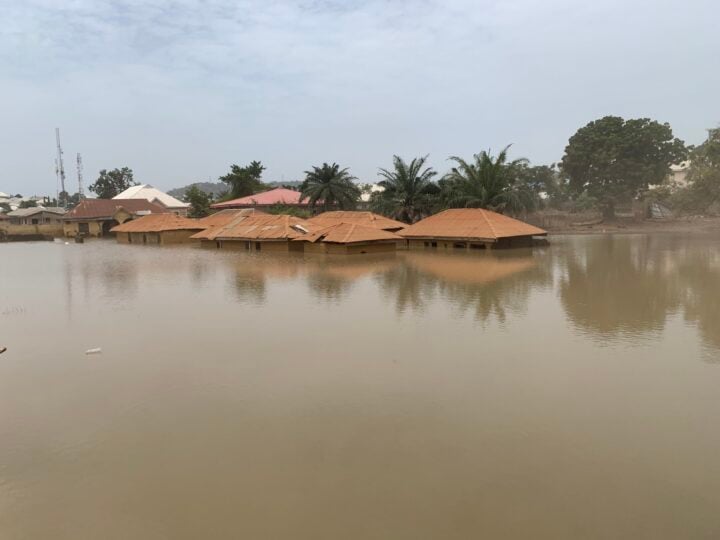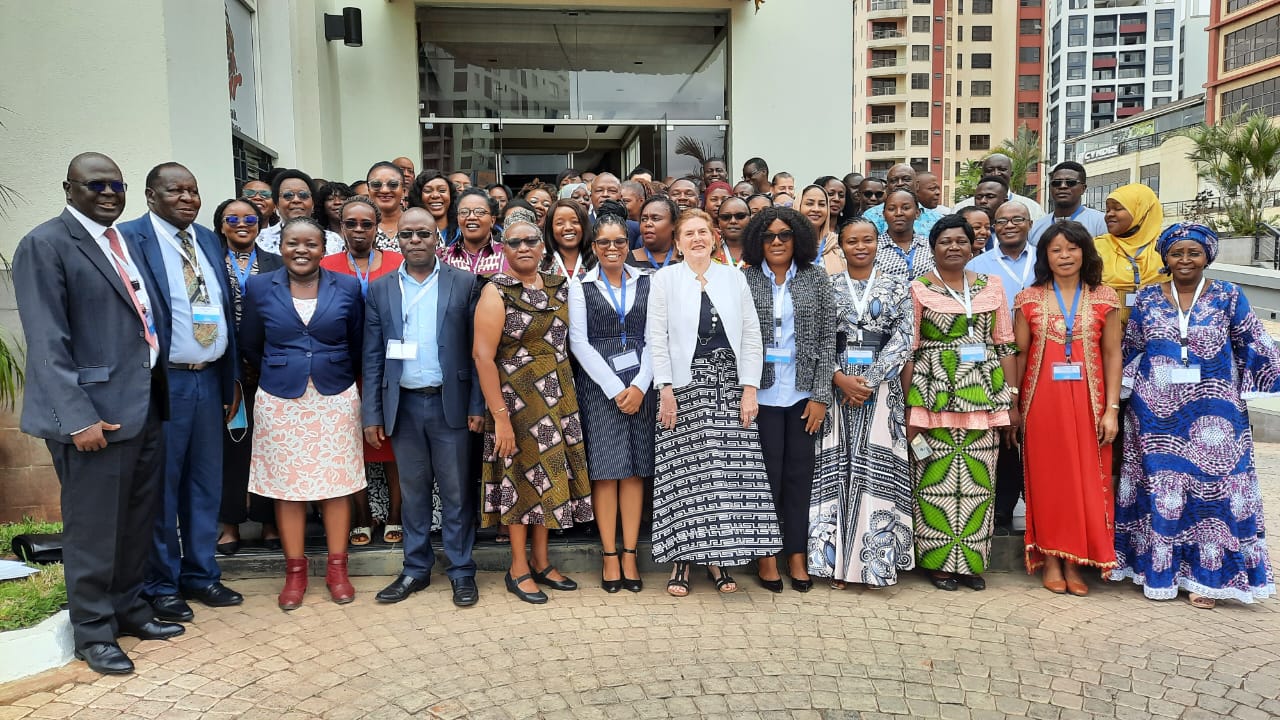What was once a community in the Zakkari Desert is now entirely covered in encroaching sands due to the extreme desertification in Yobe state. The trees on the horizon are the legendary acacia trees which hold potential to resist the desert encroachment and absorb nitrogen Ð which is among the harmful gasses contributing to climate change.
Photo by Murtala Abdullahi
The United Nations Intergovernmental Panel on Climate Change (IPCC) is set to release the last instalment of its sixth assessment report on March 20.
Since 2015, the IPCC has released three special reports that assessed the scientific, technical, and socio-economic information concerning climate change.
The panel has also put out three working group reports on the physical science basis; impacts, adaptation and vulnerability, as well as the mitigation of climate change.
In a statement on Monday, the IPCC said the last report that is about to be released integrates and summarises the findings of the six reports.
Advertisement
“The Intergovernmental Panel on Climate Change (IPCC) began its meeting today to approve the synthesis report to the sixth assessment report,” the statement reads.
“The synthesis report is the final instalment of the IPCC’s sixth assessment report. It integrates and summarises the findings of the six reports released by IPCC during the current cycle which began in 2015. This includes three special reports and the three IPCC working group contributions to the sixth assessment report.
“During this meeting, the IPCC will approve the summary for policymakers of the synthesis report line by line. The panel will also adopt the longer report section by section.”
Advertisement
Hoesung Lee, chair of the IPCC, said the reports have shown that the world has what it takes to tackle the climate crisis.
He said the synthesis report will substantially contribute to talks at the UN climate conference (COP28) in the United Arab Emirates in December.
“Our reports, including synthesis report, are solution oriented. They clearly show that humanity has the know-how and the technology to tackle human-induced climate change,” he said.
“But not only that. They show that we have the capacity to build a much more prosperous, inclusive and equitable society in this process. Tackling climate change is a hard, complex and enduring challenge for generations.
Advertisement
“We, the scientific community, spell out the facts of disheartening reality, but we also point to the prospects of hope through concerted, genuine and global transformational change.
“Once approved, the synthesis report will become a fundamental policy document for shaping climate action in the remainder of this pivotal decade.
“For policymakers of today and tomorrow, a much-needed textbook for addressing climate change. Make no mistake, inaction and delays are not listed as options.”
UN: IT COMES AT A PIVOTAL TIME
Advertisement
António Guterres, secretary general of the United Nations, said the report could not have come at a better time than now.
He said the final part of the IPCC report has once again shown that the world needs to act now because it is still possible to limit global warming with rapid emissions reductions.
Advertisement
“The facts are not in question. But our actions are,” he said.
“In less than nine months, leaders will gather at COP28 for the first global stocktake to bring the world in line with the goals of the Paris Agreement.
Advertisement
“They need solid, frank, detailed scientific guidance to make the right decisions for people and the planet.
“They must understand the enormous consequences of delay and the enormous dividends from making the tough but essential choices.
Advertisement
“I count on the IPCC to do what you have always done – point the way to solutions and show the urgent need to end global heating with cold and hard facts.”
Petteri Taalas, secretary-general of the World Meteorological Organisation (WMO), said the report has revealed that there is a need to invest in early warning services, especially in regions like Africa.
“The plan is to improve the basic observing systems in Africa, the Caribbean and Pacific islands, especially,” Taalas said.
“Your report is demonstrating that the we don’t have enough data from those regions to say whether we have seen changes in, for example, flooding events or drought events. And that kind of investment is needed to gain this baseline.”
On her part, Inger Andersen, executive director of the United Nations Environment Programme (UNEP), said: Make no mistake, action is the key word here. We need more action from governments, businesses and investors – indeed everyone.
“The IPCC’s work, which chimes with UNEP’s own research, tells us that we have the knowledge and technology we need. That we can start slashing emissions and help vulnerable communities adapt to climate change. And that by acting on climate, we are also acting on nature and biodiversity loss, and pollution and waste – the other two prongs of the triple planetary crisis.”
Add a comment






